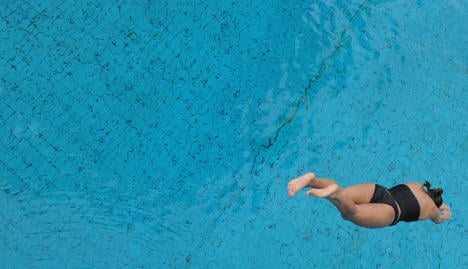Maintenance can be a burden in itself while renovations of old-fashioned and possibly even dangerous pools can be extremely expensive. At a time when local authorities are having to reduce expenditure, swimming often takes a back seat.
“Outdoor and indoor pools are both under serious threat,” said Martin Janssen, spokesman for the German Life Saving Association (DLRG).
He said at least 49 outdoor pools had fallen victim to budget cuts since 2007, while only three new ones, outdoor and indoor, have been built.
Around 230 pools are in acute danger, he said, pointing to Dresden where last year two of the 11 city open-air pools went bust – due to among other reasons, renovation costs which the city simply could not afford.
“Most outdoor pools were built in the 1960s and 1970s,” said Janssen. Since then it is often the case that little if anything has been invested to modernise them.
“Many are no longer attractive, or even in need of building work,” he said.
Apart from the social and health benefits of communities having swimming pools, Janssen pointed out that the lack made it increasingly difficult for children to learn to swim.
Even keeping the pools running can cost significant amounts of money, with the situation of the Wartbergfreibad in Pforzheim a good example. It had a deficit of more than €230,000 last year according to pools head Erich Forstner who also admitted there was €6 million worth of renovations waiting to be undertaken.
When popular pools can no longer been kept above water, residents sometimes step into the breach. The Flussbad in Rostock had already been closed – the last one in the city – when locals got together, collected donations and paid for the pool to be renovated. Similar projects have been established in Pforzheim and Karlsruhe said Janssen.
DAPD/hc



 Please whitelist us to continue reading.
Please whitelist us to continue reading.
Member comments